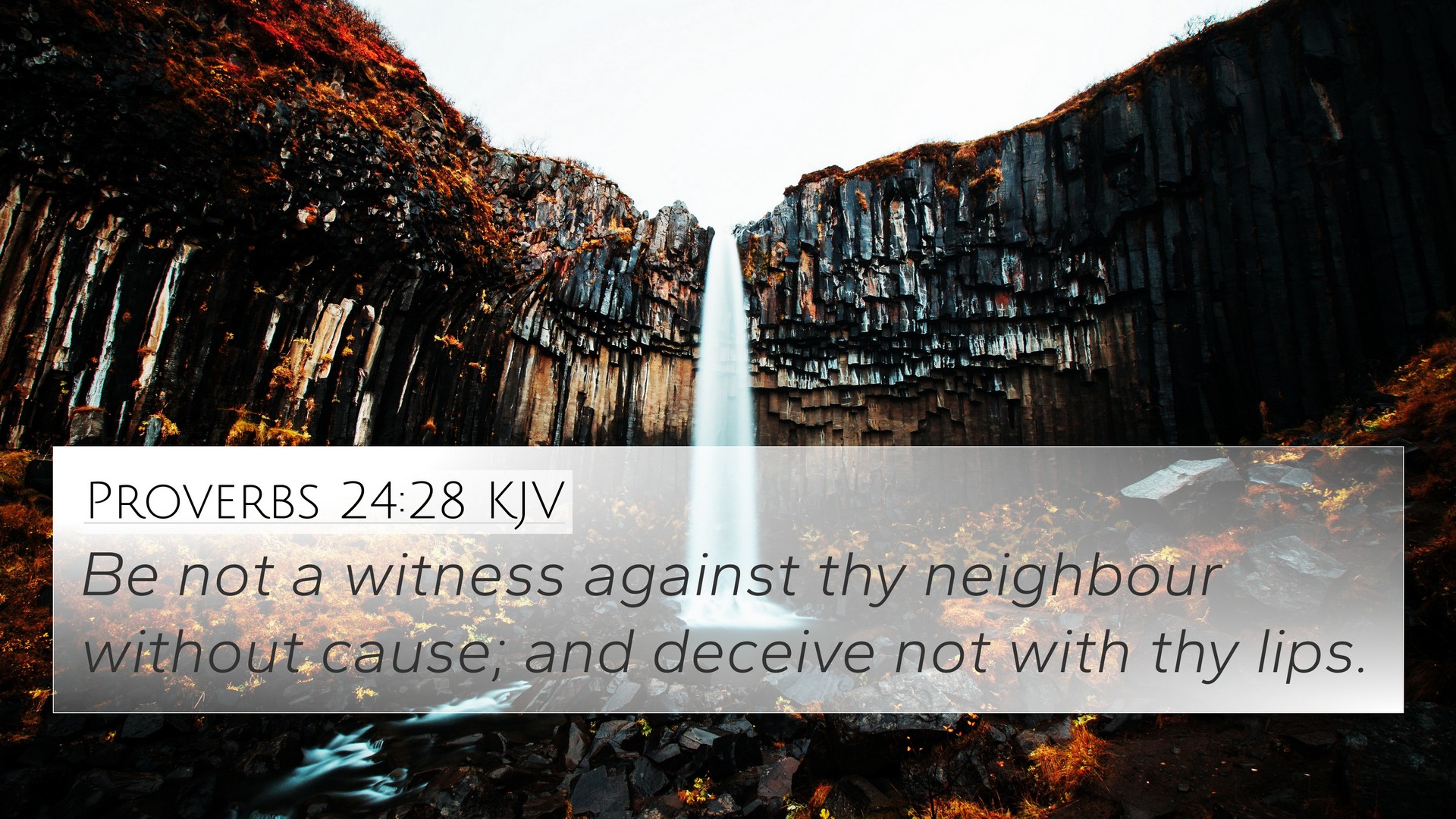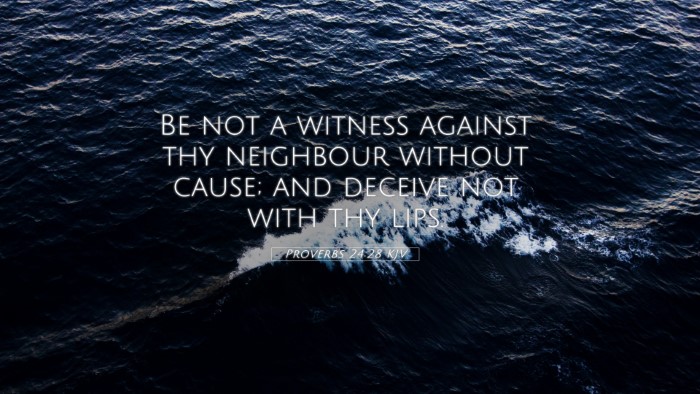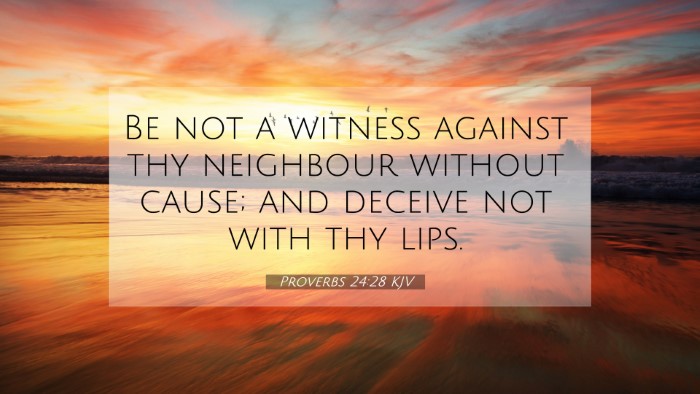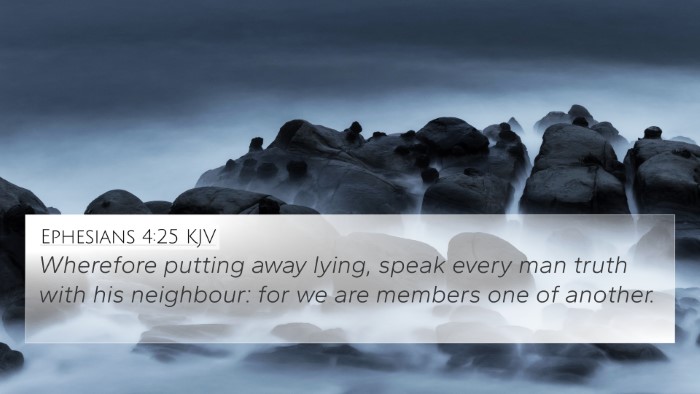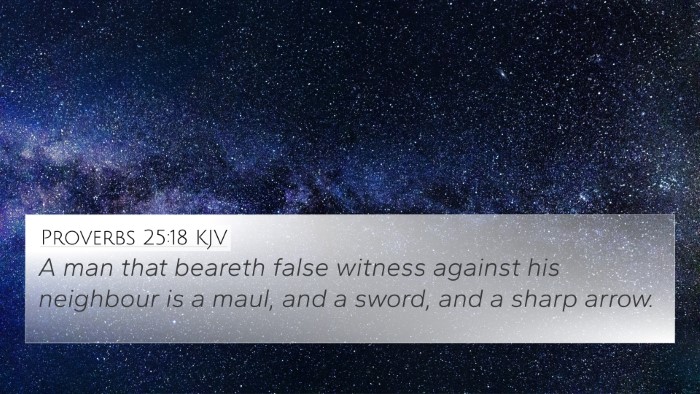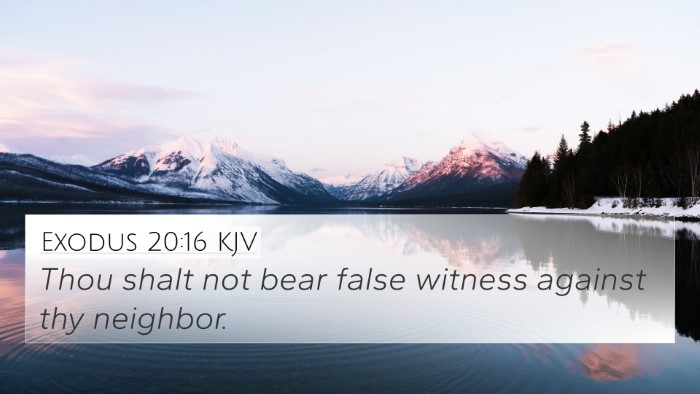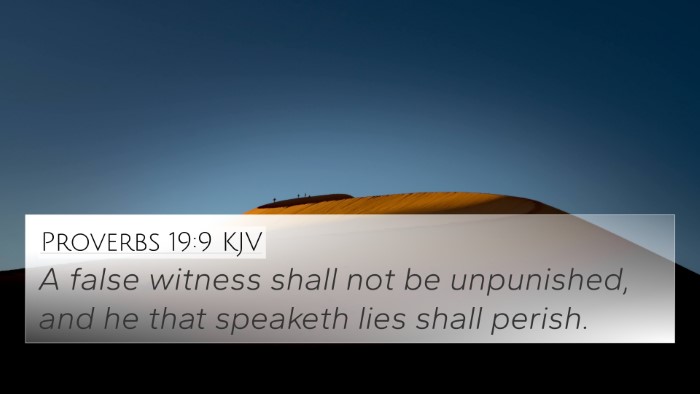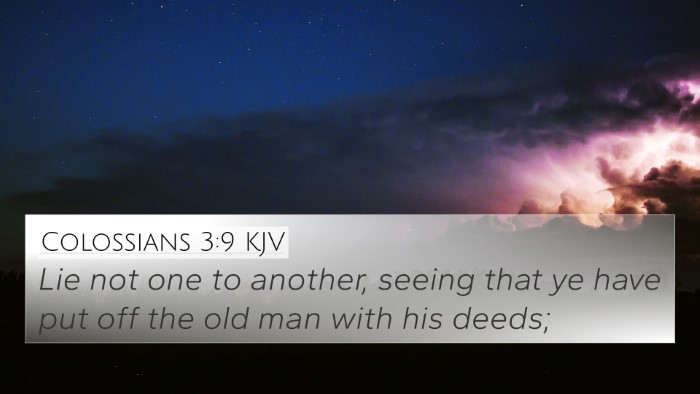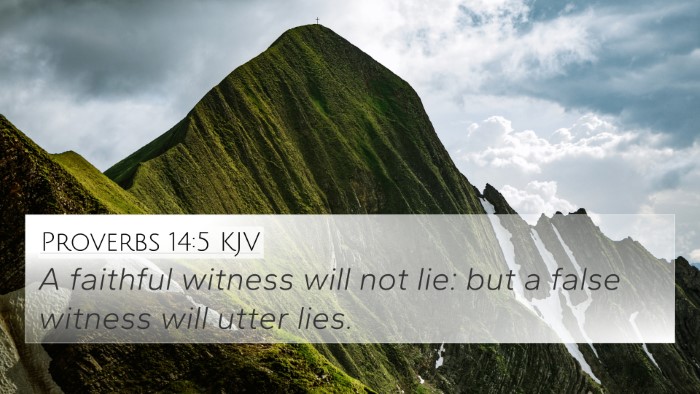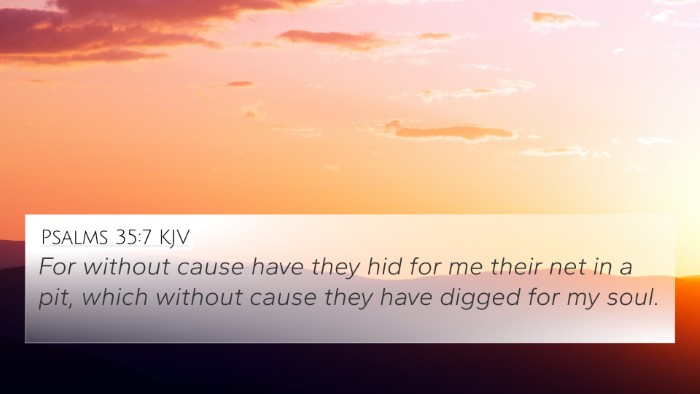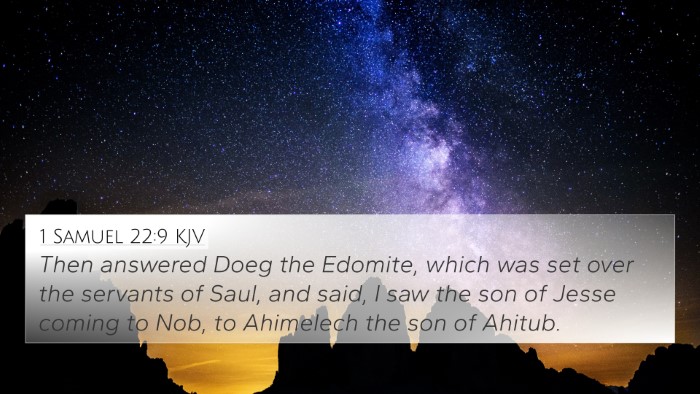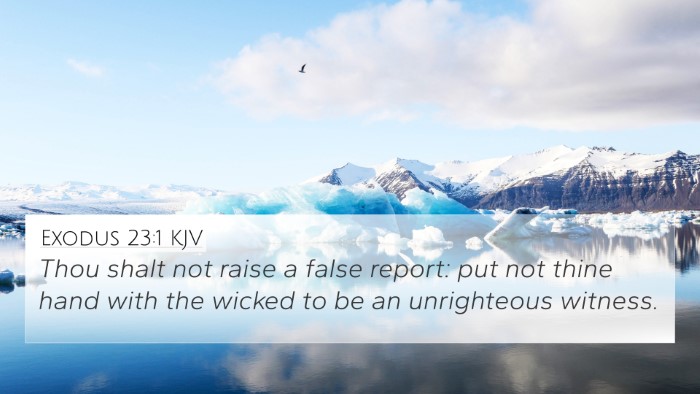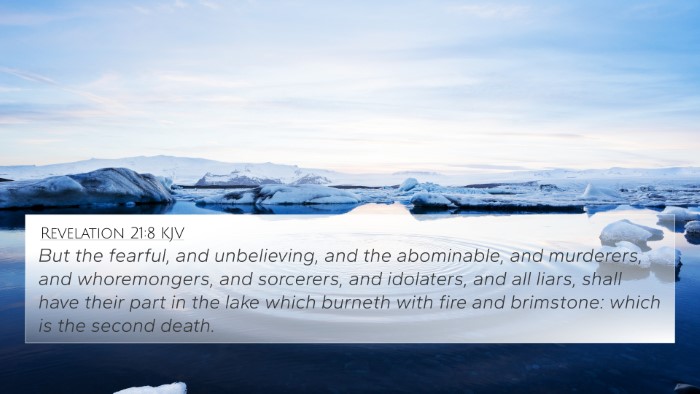Understanding Proverbs 24:28
Verse: "Be not a witness against your neighbor without cause; and deceive not with your lips."
This verse from Proverbs offers wisdom regarding the responsibility each individual has towards their neighbors. It cautions against falsely speaking or testifying against a neighbor, highlighting the moral imperative to uphold truth and integrity in relationships.
Summary of Insights
Matthew Henry's Commentary: Matthew Henry warns against the dangers of false testimony and the harm it can cause to one's neighbor and society. He emphasizes the importance of maintaining honesty and integrity in our speech, indicating that a person's words can either build relationships or tear them down. Henry contends that this advice aligns with the inherent call to love one's neighbor, as false witness stands against the very essence of love.
Albert Barnes' Notes: Albert Barnes elaborates on the significance of being a just witness. He points out that the scriptures often stress the need for fair judgment, and in this verse, the call is to avoid participating in injustice that can arise from malicious testimonies. Barnes highlights that one should consider the greater social implications of their words and actions, noting that they can have lasting repercussions on community trust.
Adam Clarke's Commentary: Adam Clarke delves deeper into the root of deceitful speech, suggesting that dishonesty can stem from envy or malice. Clarke stresses that the warning against bearing false witness isn't merely about legal implications but engages a moral and spiritual dimension, where one's conscience may become burdened by the deceit. He stresses that integrity is foundational to a harmonious society and a faithful life.
Related Cross-References
- Exodus 20:16: "You shall not bear false witness against your neighbor." - This commandment reinforces the message of Proverbs 24:28 about honesty regarding our neighbors.
- Proverbs 12:17: "He who speaks truth shows forth righteousness, but a false witness deceit." - Affirming the value of truthfulness.
- Proverbs 6:19: "A false witness who speaks lies, and one who sows discord among brethren." - Highlighting the destructive nature of bearing false witness.
- James 4:11: "Do not speak evil of one another, brethren. He who speaks evil of a brother and judges his brother speaks evil of the law..." - Encouraging against slanderous speech.
- Leviticus 19:16: "You shall not go about as a talebearer among your people; nor shall you take a stand against the life of your neighbor..." - A profound statement against gossip and slander.
- Matthew 5:11: "Blessed are you when they revile and persecute you, and say all kinds of evil against you falsely for My sake." - Acknowledging the experience of false witnessing endured by the righteous.
- Proverbs 14:5: "A faithful witness does not lie, but a false witness will utter lies." - Reinforcing the theme of fidelity in testimony.
Thematic Connections
The themes that emerge from Proverbs 24:28 and its related verses include:
- Integrity in Speech: The verse stresses the ethical use of one's words in testifying about others.
- The Community Impact of Falsehood: Each verse underscores the importance of truth for maintaining social harmony.
- Moral Responsibility: Highlighting that individual actions of honesty contribute to the greater good.
Practical Applications
In light of Proverbs 24:28, individuals are encouraged to apply the following principles in daily life:
- Be mindful of the words we speak about others, ensuring they are accurate and kind.
- Seek reconciliation rather than condemnation in conflicts with neighbors.
- Uphold the integrity of the community by preventing the spread of slander and deceit.
Conclusion
Proverbs 24:28 serves as a timeless reminder of our moral obligations towards one another. By weaving together the teachings of Matthew Henry, Albert Barnes, and Adam Clarke, we gain a comprehensive understanding of the ethical implications behind our testimonies. Embracing honesty not only fulfills biblical commandments but fosters a community rooted in trust and love.
Further Study and Tools for Cross-Referencing
For those interested in delving deeper into biblical cross-references, several tools can enhance understanding:
- Bible Concordance: A tool to locate specific words and their occurrences throughout scriptures.
- Bible Cross-Reference Guide: Systems that link verses thematically or contextually.
- Cross-Reference Bible Study Methods: Various methodologies to connect and analyze related verses.
- Comprehensive Bible Cross-Reference Materials: Resources that provide extensive lists and explanations of interconnected verses.
In summary, the exploration of Proverbs 24:28, through the lens of its rich commentary tradition and related verses, reinforces the importance of integrity, truth, and the profound impact of our speech within the community.
